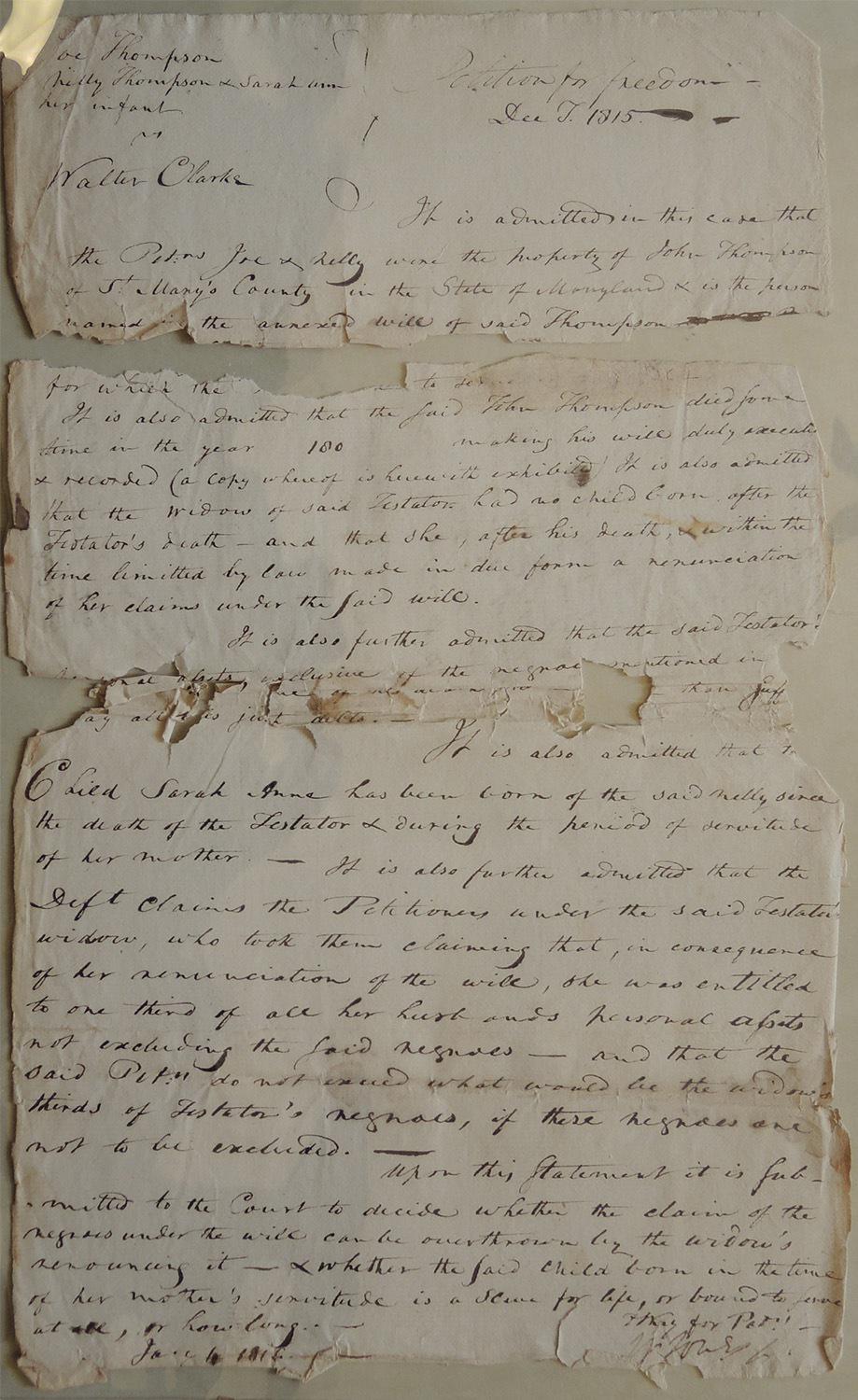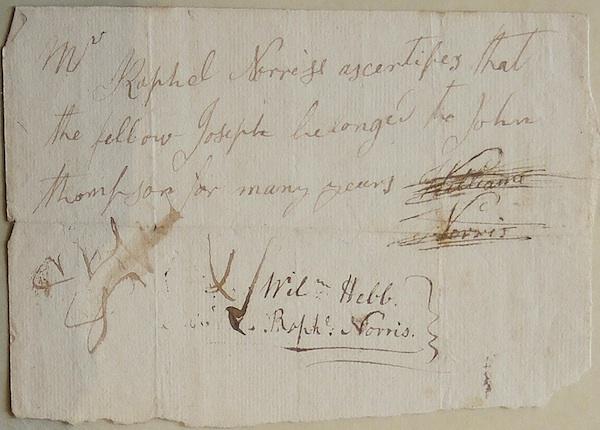A redesigned website now offers access to hundreds of freedom petitions brought by enslaved people in Washington, D.C., in the first half of the 19th century. The site—O Say Can You See: Early Washington, D.C. Law and Family—showcases the diversity of strategies that black people living in D.C. used to gain freedom through the courts in the antebellum period.
Many of these freedom cases were previously difficult to access, since a major source used in writing the legal history of the U.S. Court of Appeals for the District of Columbia Circuit has been the case reports of William Cranch, who served as chief justice of that court from 1806 to 1855. “Cranch excluded the last names of nearly all African-Americans,” William Thomas, a historian at the University of Nebraska–Lincoln who headed the team that put together the website, explained to me.
Working at the National Archives a few years ago, Thomas came across an index of court cases called Black Washingtonians, which had been put together by archivists working from original case documents (rather than Cranch’s summaries). Looking at the index, Thomas realized how much more information was available.
The site offers access to those primary documents. Browsers can explore it by looking at a group of annotated cases; by checking out stories of families who petitioned the court over several generations; or by picking a single person, like lawyer Francis Scott Key (yes, that Francis Scott Key), and looking at their connections to other people in the database.
People doing genealogical research can search for family names. As the site’s team adds more documents from civil and criminal cases in the coming year, its usefulness for researchers looking to fill in their family histories will expand.
Here is a petition from Joseph Thompson, filed as part of the case that Key, representing the blacksmith and father, brought in front of the court in 1816. John Thompson, who held Joe and his wife Nelly at the time of his death in 1805, left a provision in his will stipulating that if his wife failed to produce a child within nine months of his death, the couple should be freed in 10 years’ time.
Thomas points out that Thompson must have kept careful track of the terms of his enslaver’s will. Thompson found his way to Francis Scott Key, who had represented other petitioners for freedom, and put together this case as soon as the 10 years were up.
Thompson was successful in his suit; in 1817, he was declared free, along with his wife and child.
A transcript follows the document.

O Say Can You See: Early Washington DC Law and Family
Transcript from the O Say Can You See website.
Joe Thompson Nelly Thompson & Sarah Anne her infant
vs
Walter Clarke
Petition for Freedom
Dec T. 1815
It is admitted in this case that the Petrs Joe & Nelly were the property of John Thompson of St Mary’s County in the State of Maryland & is the person named in the annexed will of said Thompson [illegible]
It is also admitted that the said John Thompson died some time in the year 180 making his will duly executed & recorded (a copy whereof is herewith exhibited) It is also admitted that the widow of said Testator had no child born after the Testator’s death and that she, after his death, & within the time limitted by law made in due form a renunciation of her claim under the said will.
It is further admitted that the said Testator [illegible]
Child Sarah Anne has been born of the said Nelly since the death of the Testator & during the period of servitude of her mother. It is also further admitted that the Deft claims the Petitioners under the said Testator’s widow, who took them claiming that, in consequence of her renunciation of the will, she was entitlled to one third of all her husbands personal assets not excluding the said negroes. and that the said Petrs do not exceed what would be the widow’s thirds of Testator’s negroes, if these negroes are not to be excluded.
Upon this statement it is submitted to the Court to decide whether the claim of the negroes under the will can be overthrown by the widow’s renouncing it & whether the said child born in the time of her mother’s servitude is a slave for life, or bound to serve at all, or how long.
FSKey for Petrs
Jany 4, 1816
